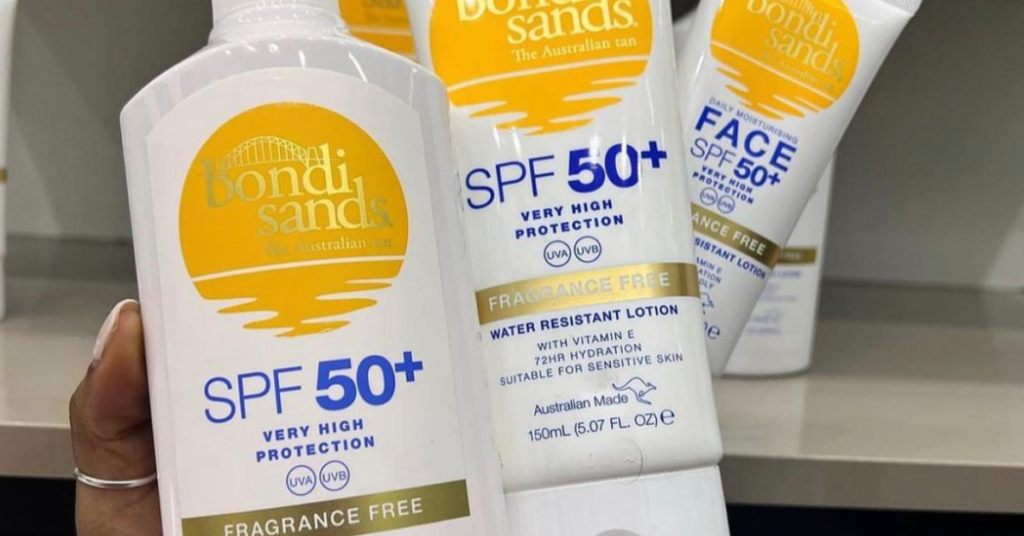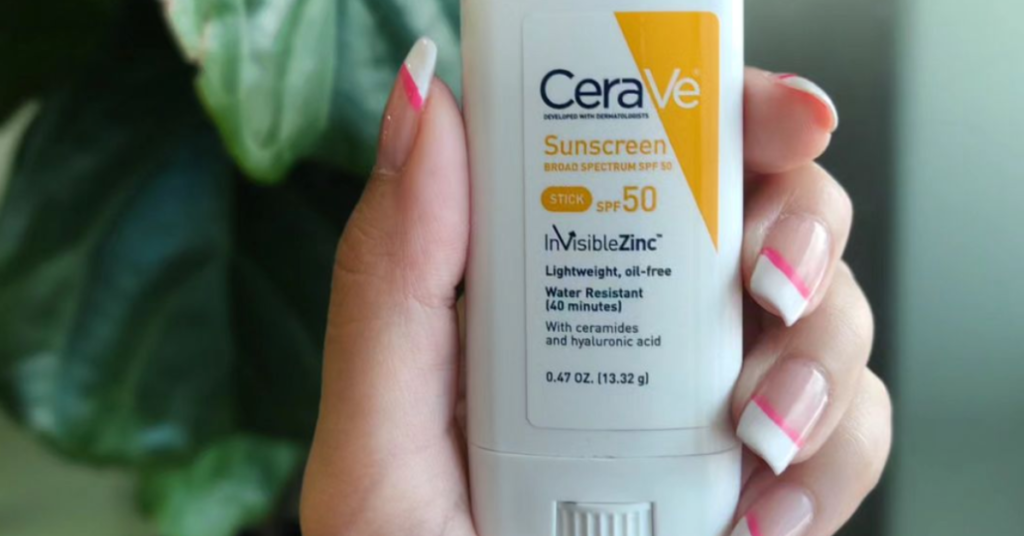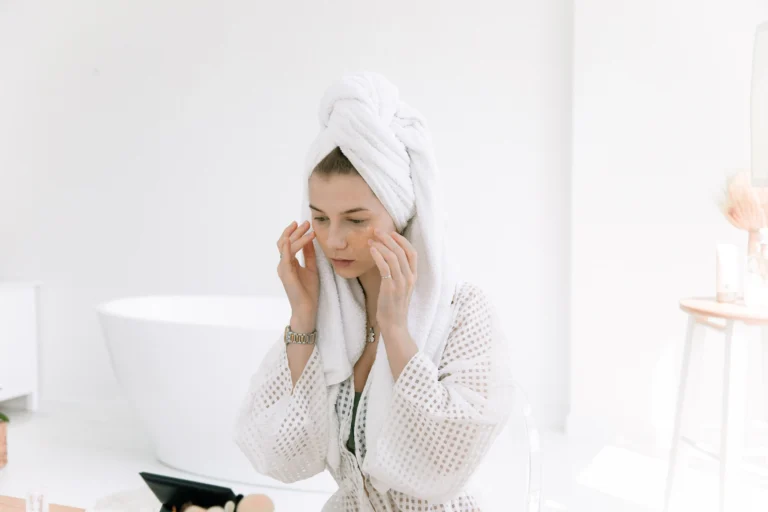Are you tired of constantly fighting off acne outbreaks? Does your search for clear, flawless skin leave you frustrated? We get it and are excited to share a potential missed element: the Sun.
Acne, the bane of skincare, plagues millions worldwide, leaving behind scars, self-esteem issues, and endless questions. You’ve likely heard whispers that the sun could be the saboteur behind your acne struggles, but uncertainty lingers. Is there a connection? Can the Sun Cause Acne?
Buckle up, because we’re about to uncover the answers you’ve been searching for. In this article, we’ll dive deep into the enigmatic relationship between the Sun and acne, dispelling myths, and revealing facts.
Table of Contents
Can the Sun Cause Acne?
So, can the sun cause acne? Well, the answer is not so straightforward.
On one hand, sun exposure can make acne worse by drying out the skin and causing sebaceous glands to produce more sebum, which can lead to blemishes. In fact, sunlight can even trigger a specific type of acne called Acne Aestivalis. However, some experts believe that in the short term, the sun may actually improve acne by drying out excess sebum.
But regardless of whether the sun worsens or improves acne, one thing is for sure: it can be damaging to your skin. That’s why it’s important to protect your skin from harmful UV rays by using sunscreen and other protective measures. By doing so, you can prevent further skin damage while still enjoying the sunshine.
So, while the sun may not directly cause acne, it’s still important to take care of your skin when spending time outdoors.
Best Practices for Sun Protection and Acne Prevention

Sun protection is important for everyone, but it’s especially important for those with acne-prone skin.
Here are some best practices for protecting your skin from the sun while also preventing acne:
- Use sunscreen: Sunscreen is a must when it comes to protecting your skin from harmful UV rays. Look for a broad-spectrum sunscreen with an SPF of at least 30, and apply it generously to all exposed skin.
- Choose non-comedogenic products: When selecting sunscreen, moisturizer, and other skincare products, look for non-comedogenic options that won’t clog pores.
- Wear protective clothing: Clothing can provide an additional layer of protection from the sun’s rays. Wear a hat, sunglasses, and long-sleeved shirts and pants when possible.
- Limit sun exposure: Try to avoid spending extended periods of time in direct sunlight, especially during peak hours when the sun’s rays are strongest.
- Be mindful of medication side effects: Certain medications used to treat acne, such as retinoids, can make your skin more sensitive to the sun. Be sure to read the labels and follow your doctor’s instructions carefully.
- Be gentle with your skin: Acne-prone skin can be more sensitive than other skin types, so be gentle when cleansing and moisturizing. Use mild, fragrance-free products and avoid harsh scrubbing or exfoliating.
Sunscreen and Skin Protection

In my quest to uncover the truth about whether the sun can cause acne in 2024, I couldn’t ignore the critical role of sunscreen and skin protection. Here’s a handy guide to keep your skin safe and radiant:
- Choose the Right Sunscreen: Opt for a broad-spectrum sunscreen with an SPF of 30 or higher. Look for “non-comedogenic” on the label, as it won’t clog your pores.
- Apply Generously: Don’t skimp on sunscreen. Apply a liberal amount to cover your face and body adequately. Reapply every two hours, especially when swimming or sweating.
- Check for Acne-Friendly Ingredients: Seek sunscreens with zinc oxide or titanium dioxide, as they are less likely to irritate the skin and trigger breakouts.
- Avoid Oils and Fragrances: Oil-based sunscreens can exacerbate acne. Choose oil-free or water-based options. Fragrance-free products are also gentler on sensitive skin.
- Stay in the Shade: Limit your time in direct sunlight, especially during peak hours. Seek shade to reduce exposure.
Pro Tip: Always remember that sunscreen is not a magic shield against acne. It’s crucial to combine it with a consistent skincare routine and consult a dermatologist for personalized advice on managing acne-prone skin in the sun.
What Causes Acne?
Acne occurs when there is excess oil production, hair follicles become clogged with oil and dead skin cells, and bacteria start to grow. These factors can lead to the formation of pimples, whiteheads, blackheads, and cysts on the skin.
While excess oil production, clogged hair follicles, and bacteria are the primary causes of acne, there are other factors that may trigger or worsen it. For example, genetics can play a role in the development of acne. Hormonal changes, certain medications, and underlying medical conditions like polycystic ovary syndrome (PCOS) can also contribute to acne.
How to Prevent Acne?

Here are out 7 best expert tips for keeping your skin clear:
- Keep your face clean: Washing your face once or twice a day with an over-the-counter benzoyl peroxide face wash can help remove excess oil, dirt, and sweat from your skin.
- Remove excess oil, dirt, and sweat daily: Whether you’re exercising or just going about your day, it’s important to keep your skin clean and free of excess oil, dirt, and sweat that can clog pores and lead to breakouts.
- Avoid oil-containing cosmetics: Certain cosmetics can contribute to acne by clogging pores. Look for oil-free and non-comedogenic options instead.
- Try over-the-counter acne products: There are many over-the-counter acne products available, including spot treatments and face washes, that can help prevent breakouts.
- Use makeup sparingly: Wearing makeup can contribute to acne by clogging pores. If you do wear makeup, use it sparingly and look for non-comedogenic options.
- Watch what you put on your skin: Some hair products and other skincare products can contribute to acne by clogging pores. Be mindful of what you’re putting on your skin and look for non-comedogenic options.
- Keep your hands off your face: Touching your face can spread bacteria and irritate the skin, leading to breakouts. Try to keep your hands off your face as much as possible.
Myths vs. Facts: Can the Sun Cause Acne?

As we delve into the intriguing topic of whether the sun can cause acne, it’s crucial to separate myths from facts. Misinformation can lead to misguided skincare decisions. Let’s get straight to it:
Myth 1: Sun Exposure Always Improves Acne:
Fact: While some people notice temporary improvements due to the drying effect of the sun, prolonged sun exposure can worsen acne by triggering inflammation and promoting clogged pores.
Myth 2: Sunscreen Blocks Vitamin D Production
Fact: Sunscreen doesn’t completely inhibit vitamin D synthesis. Dermatologists recommend brief, sun-protected exposure to maintain healthy vitamin D levels.
Myth 3: Sunburn Dries Out Acne
Fact: Sunburn damages the skin and can exacerbate acne. It’s essential to protect your skin, especially when using acne treatments that increase sun sensitivity.
Myth 4: Tanning Beds Help Acne
Fact: Tanning beds are harmful and increase the risk of skin cancer. They don’t provide a safe or effective acne solution.
Myth 5: All Skin Types React the Same
Fact: People with different skin types react differently to the sun. While some may experience acne flare-ups, others might see improvement. Personalized care is key.
Pro Tip: Consult a dermatologist for tailored advice on managing acne and sun exposure. They can recommend suitable skincare routines and products, ensuring your skin stays healthy and radiant while protecting it from potential sun-related issues.
FAQ

Does sun make acne worse?
While sun exposure may initially improve acne appearance by drying out sebum, it can actually worsen acne over time. The sun’s rays can cause skin to become dry, and even oily skin requires moisture.
Why do I get pimples after being in the sun?
There are several ways that sun exposure can cause pimples. Excessive sun exposure can cause skin to dry out, causing sebaceous glands to produce excess sebum, which is one of the key stages in the formation of blemishes. Sun exposure can also disrupt the skin’s balance and exacerbate acne.
Can you break out from the sun?
Sun exposure can actually cause breakouts by drying out and thickening the skin, which leads to increased oil production and more acne. Furthermore, prolonged sun exposure can result in solar comedones, a type of acne caused by sun radiation. While some experts believe that sun exposure can temporarily improve the appearance of acne by drying out sebum, it is not a long-term solution and can actually worsen acne.
How do you get rid of sun pimples?
Topical retinoids and extraction can be used to treat sun pimples, also known as solar comedones. It is critical to limit sun exposure and cigarette smoking to avoid the formation of new comedones. Cotton clothing that covers the affected areas is also advised.
Can sunscreen prevent acne?
Yes, sunscreen can aid in acne prevention. Sunscreen shields the skin from UV rays and free radicals that can cause acne while also reducing skin redness. Daily use of sunscreen can also help prevent acne caused by sun exposure.
Is Vitamin D good for acne?
The link between vitamin D and acne is not completely clear. While some studies suggest that vitamin D may help reduce acne-related inflammation, others suggest that vitamin D deficiency is more common in acne patients. However, taking vitamin D supplements may cause hormonal acne in some people, even those who have never had it before.
What do sun pimples look like?
Sun pimples are not a recognized medical term. However, sun exposure can cause a variety of rashes, including polymorphic light eruption, sun rash, and sun allergy. These rashes can manifest as raised pink or red spots, blisters that dry up, or a red itchy rash that groups together and feels burning.
If you liked this blog article about the question: Can the Sun Cause Acne, don’t forget to leave us a comment down below to tell us about your experience.





